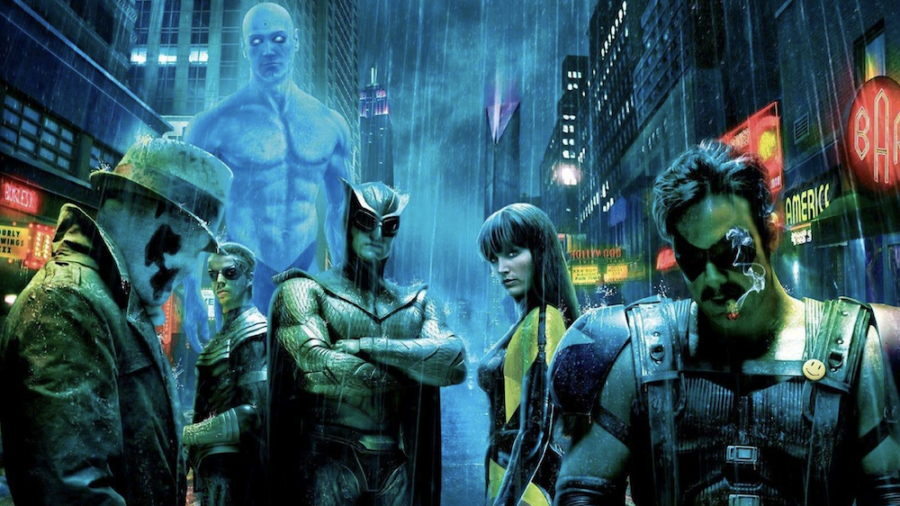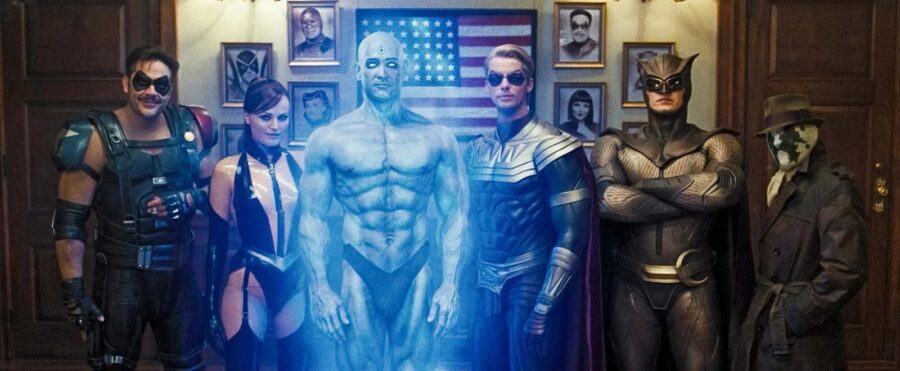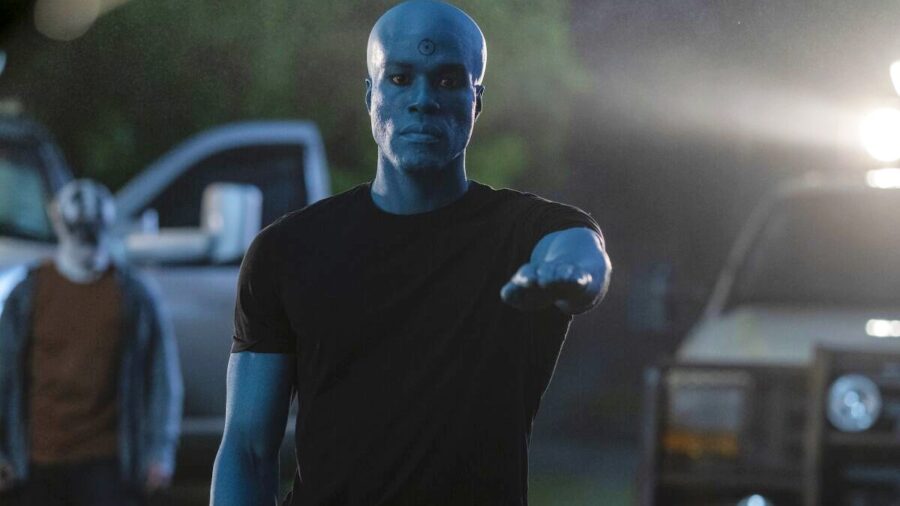New Watchmen Movie Is Already Doomed

DC announced a new Watchmen movie recently at San Diego Comic-Con. This new attempt to adapt the most famous comic book of all time is going to be animated, conceivably making it the most faithful adaptation of the property to date. And yet, no movie adaptation of Watchmen can ever be 100 percent faithful to the source material, and with good reason: Alan Moore designed it that way.
While most people consider Watchmen to be just a gritty deconstruction of superhero comics—which on one level it is—like most good literature, it’s far too complex to be broken down so easily. Watchmen is, in many ways, a love letter to the medium of comic books itself.
Specifically superhero comics. Over twelve issues, Watchmen, in its own way, tells the history of superheroes from their humble origins in the ’30s and ’40s to what was then, present-day 1987.
[N]o movie adaptation of Watchmen can ever be 100 percent faithful to the source material, and with good reason: Alan Moore designed it that way.
In other words, Watchmen is a comic book about comic books, and no movie will ever be able to convey that properly. Alan Moore was once quoted as saying that what he wanted to explore with Watchmen was “The areas that comics succeed in where no other media is capable of operating.” Moore has stressed time and time again that there are things he did with Watchmen that “That could only work in a comic and were indeed designed to show off things that other media can’t.”
And yet, Warner Bros. just keeps trying to turn Watchmen into something else, first a live-action movie, then a sequel miniseries, and now an animated film. What’s that saying about the definition of insanity?
There have been several YouTube video essays like this one by Kaptainkristian that go into great detail about why Watchmen is inherently unadaptable. It all boils down to how the comic book was constructed.
Alan Moore has stressed time and time again that there are things he did with Watchmen that “could only work in a comic and were indeed designed to show off things that other media can’t.”
All 12 issues of Watchmen are comprised of pages featuring nine panels laid out in a grid. This grid setup allows for storytelling techniques that only work on paper, such as with issue #5, “Fearful Symytry” where the pages from the first half of the book mirror the pages in the second half of the book, with the middle two pages converging into a single image.
Zack Snyder’s Watchmen

It’s a visual statement that doesn’t translate well to the screen, as evidenced by the 2009 Watchmen movie from Zack Snyder. Snyder attempts to make up for the lack of comic panels by using slow motion and other movie gimmicks, but they’re a poor substitute for what’s on the page.
Something like Rorschach’s word balloons being smooth and uniform prior to a traumatic event involving a little girl and jagged and messy afterward to convey his crumbling psyche just can’t be translated accurately to the screen.
Even the character of Doctor Manhattan, Watchmen‘s only character with any so-called “super powers” is inexorably tied to the medium of comic books. The non-linear way in which Manhattan experiences time is meant to mimic the way time exists in a comic book.

The events on page 2 are happening at the same time as the events on page 22. Readers are free to flip back or skip ahead whenever they wish because all parts of the story exist simultaneously. This is, again, something that is nigh impossible to articulate when Watchmen is made into a movie.
Adapting Watchmen into a movie is kind of like adapting the classic Beatles album, Sgt. Pepper’s Lonely Heart’s Club Band into a series of watercolor paintings. The paintings could convey lyrics from the songs and possibly, depending on how good the artist is, even feelings that certain songs evoke in the listener.
No matter what, though, no medium other than a sound recording is ever going to accurately portray the experience of Sgt Pepper, just like no movie is ever going to capture the essence of what it’s like to read Watchmen.
While there have been several attempts to adapt Moore’s work into film—The League of Extraordinary Gentlemen, V for Vendetta, The Killing Joke—most of them only serve to prove just how impossible it is to translate Moore’s voice and themes to the big screen.
Watchmen is, of course, the most dubious example, but none of the movies really do Moore any justice, and most only succeed at ruining a piece of art in the name of commerce. Hence why, we are getting yet another Watchmen movie.
Obviously, we’ll reserve our final judgment until the movie is released sometime in 2024, but considering the comic’s unfilmable nature, we aren’t getting our hopes up for a masterpiece.












